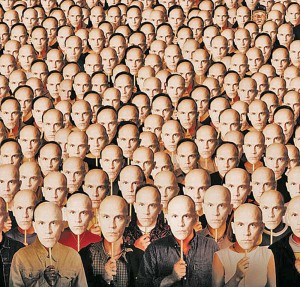Google has an estimated market value of $290 billion, making it one of the most powerful and influential companies in the world. From searching for answers to our problems on the internet to accessing directions via Google Maps and using Gmail to email customers and clients, we use Google’s many products and services each and every day. Every start-up company across the world dreams of having just a taste of the success that Google has experienced. Like The Beatles and McDonalds, Google has become a household name and most people have some idea of what ‘Google’ means.
The Google brand has in fact become so pervasive that the word ‘Google’ might not only refer to the specific company any more. How many times have you told a friend to ‘Google’ something? And when you used the word Google in this context, did you mean that your friend should search for something on Google, or did you mean that they should search for something on the internet more generally? Having a brand name that reaches such levels of fame that it resonates with this new level of meaning might seem like a positive thing, but it can also lead to companies losing their trademarks – the identifiers that make them so valuable in the first place. In 2009, the Global Language Monitor named ‘Google’ the 7th top word of the decade – but could the power of the ‘Google’ word be hurting the Google brand?
Recently, a man in the United States was ordered to turn over 750 websites that he had created with the word ‘Google’ in the title, such as www.googlegaycruises.com. In Google’s opinion, the man was using the Google trademark without permission, but in his defense the man claimed that the ‘Google’ word no longer only related to the Google brand but to a whole range of internet search services. In other words, the word had become a generic term and consequently Google should no longer have any right to its trademark – at least in the opinion of the defense.
Unfortunately for Google, the threat around the company trademark is very real. Countless companies in business history have also lost their most important asset, their name, because of their incredible business growth and a resulting generalization of the brand name. Take Aspirin, for instance. We now consider aspirin to be a generic term to describe a medicine that relieves pain and headaches, but it started its life as a registered brand of Bayer and it lost its trademark. Oddly enough, Bayer also owned the brand name Heroin. Or how about escalators? Initially, the term escalator was a trademarked brand name that was registered by the Otis Elevator Company. When all moving stairs started being described as escalators, the company lost its trademark and some of its brand power as a result.
Google has combated the use of ‘Google’ as a verb by asking employees and publications to refrain from using the term “googling”. However, in 2006, the Oxford English Dictionary and the Merriam Webster Collegiate Dictionary both defined ‘google’ as a verb, defined as: to use the Google search engine to obtain information on the Internet.
Although Google should feel very happy and proud about their incredible success, they will need to take measures to stop people using the word ‘Google’ in a generic way in order to protect their trademark. For Google, losing their name would be more than just losing a word, it would be the loss of a $290 billion dollar asset.
